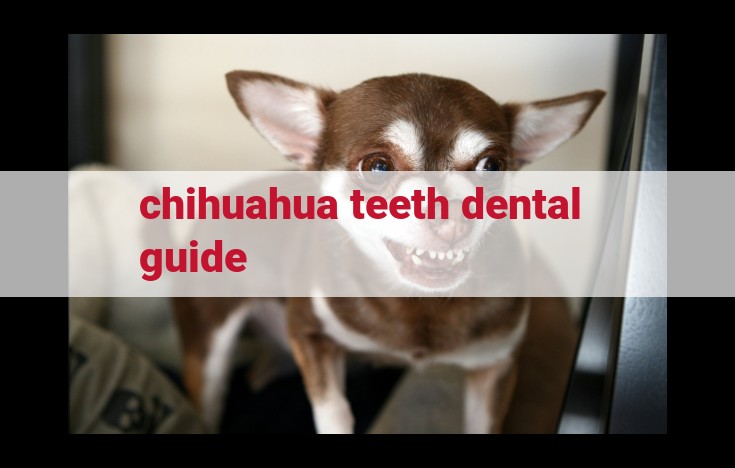Dog cloning carries inherent risks and costs. The high expense of the procedure can impose financial burdens on pet owners. Cloning success rates remain uncertain, and cloned dogs may face health issues specific to the cloning process. Ethical concerns surrounding animal manipulation and genetic engineering warrant consideration.
Delving into the Realm of Genetic Replication
In a world consumed by scientific advancements, dog cloning has emerged as a captivating topic, sparking a range of emotions and ethical dilemmas. Cloning, an intricate process involving the duplication of an entire genetic blueprint, offers intriguing possibilities in the world of canine companionship and preservation.
Unveiling the Purpose Behind Dog Cloning
Dog cloning serves a specific purpose: to create a genetically identical copy of an existing dog. This could stem from a desire to prolong the life of a beloved pet, preserve the genetics of a rare or endangered breed, or advance medical research. The ethical implications surrounding this practice, however, remain complex and warrant careful consideration.
Deciphering the Intriguing Process of Cloning
The procedure involves obtaining a donor cell, typically from the skin or blood of the dog being cloned. This cell’s nucleus, which houses the genetic information, is extracted and fused with an enucleated egg cell, that is, an egg cell with its own nucleus removed. The resulting embryo, now carrying the genetic material of the donor, is implanted into a surrogate dog. If the procedure is successful, a genetically identical puppy is born, mirroring the health and appearance of its cloned parent.
The Financial Implications of Dog Cloning
Dog cloning has become a reality, but it comes with a hefty price tag. Cloning a dog can cost anywhere from $50,000 to $100,000 or even more, making it a significant financial investment. This cost is significantly higher than cloning other animals, such as cats, which can cost around $25,000. The high cost of dog cloning is due to the complexity of the procedure and the need for specialized equipment and expertise.
In addition to the initial cost of cloning, there are also ongoing expenses to consider. Cloned dogs may require special medical care and monitoring, which can add to the overall cost of ownership. It’s important to factor in these additional expenses when considering whether or not to clone a dog.
The financial implications of pet ownership should also be considered. Owning a dog is a significant expense, even without cloning. The cost of food, vet care, and other supplies can add up over time. Cloning a dog will only add to these expenses. It’s crucial to be prepared for the financial commitment before making a decision about cloning.
Responsible pet ownership involves considering all of the costs involved, both upfront and ongoing. Cloning a dog is a major financial investment, and it’s important to weigh the costs against the potential benefits. If you’re considering cloning a dog, be sure to do your research and understand all of the financial implications involved.
Success Rate of Dog Cloning
Unveiling the Challenges and Prospects
While cloning technology has made significant strides, the success rate of dog cloning remains a topic of scrutiny. As with any complex biological process, factors such as species, age, and genetic factors influence the likelihood of a successful outcome.
Insights from Other Animal Cloning
Examining the success rates achieved in cloning other animals provides valuable insights. For instance, cattle and horse cloning have demonstrated higher success rates than mice or monkeys. This variability highlights the unique challenges associated with cloning different species.
Influential Factors
Age: The age of the donor cells used for cloning plays a crucial role. Younger cells exhibit greater viability and reduce the risk of chromosomal abnormalities.
Genetic Factors: Genetic diversity within the donor population also impacts cloning success. Dogs that share a genetic lineage may have a higher likelihood of successful cloning due to reduced immune rejection.
Fetal Loss: Early fetal loss is a common challenge in dog cloning. This hurdle arises from the complexity of canine embryonic development, which is still less understood compared to other species.
Embracing Innovation and Advancements
Despite these challenges, ongoing research and technological advancements are paving the way for improved success rates in dog cloning. Scientists are exploring optimized culture media, cell reprogramming techniques, and genetic screening to increase the viability and health of cloned embryos.
Understanding the factors influencing dog cloning success is essential for informing responsible decision-making and future research endeavors. While challenges persist, the dedication of scientists and the advancements in technology provide hope for progress. As the field continues to evolve, we can anticipate enhanced success rates and a brighter future for dog cloning.
Health Risks Associated with Dog Cloning: What You Need to Know
Delving into the Unique Health Concerns
Dog cloning, while holding the allure of preserving beloved companions, raises serious health concerns unique to cloned animals. Cloned dogs are prone to a range of health issues, distinct from those in their naturally conceived counterparts. These include an increased risk of musculoskeletal problems, such as hip dysplasia and arthritis. Additionally, cloned dogs have higher incidences of skin and respiratory infections, potentially due to _impaired immune systems.
Comparisons to Other Animal Cloning
Health risks in dog cloning mirror those observed in cloned animals of other species. For example, cloned sheep, cows, and pigs have shown similar predispositions to respiratory issues and abnormal bone development. This suggests that the cloning process itself may introduce inherent health vulnerabilities.
Parallels to IVF in Humans
The health risks associated with dog cloning draw parallels to those found in in vitro fertilization (IVF) in humans. IVF also involves manipulation of genetic material and gestational surrogacy, potentially leading to _birth defects and developmental problems.
Ensuring Responsible Decisions
Given these health concerns, it’s crucial for potential dog owners to make informed decisions about cloning. Thorough research is essential to understand the risks and potential consequences. Working with reputable cloning facilities and veterinary professionals is also vital in promoting the health and well-being of cloned dogs.
Ethical Concerns about Dog Cloning
Dog cloning, while offering the tantalizing prospect of replenishing the life of a beloved companion, raises profound ethical questions that demand thoughtful consideration.
Manipulating Life and Genetic Engineering
Cloning involves creating a genetically identical copy of an existing individual. While this can be seen as a way to preserve the unique traits of a cherished pet, it also raises concerns about the manipulation of life and the potential consequences of altering the natural genetic diversity of dog breeds. Ethicists argue that it is wrong to create new animals solely for the satisfaction of humans, potentially compromising their well-being in the process.
Unintended Consequences and Health Risks
Studies have shown that cloned animals may face a higher risk of developing certain health conditions than their naturally conceived counterparts. These risks include immune system deficiencies, metabolic disorders, and behavioral problems. Cloning also perpetuates genetic defects that may exist in the original animal, potentially amplifying health concerns within a breed. The long-term health implications of dog cloning remain largely unknown, raising concerns about the ethical implications of subjecting animals to potential risks and suffering.
Commodification of Animals
Cloning technology could potentially lead to the commodification of animals, reducing them to mere objects to be bought, sold, and manipulated for human desires. It could undermine the special bond between humans and their pets, turning them into replaceable commodities rather than cherished members of the family.
Comparison to Other Animal Cloning
Ethical concerns about dog cloning are similar to those raised in the cloning of other animals. However, the emotional bond between humans and dogs may intensify these concerns, as dogs are often seen as more than just pets but as loyal companions and integral members of our lives. It is crucial to balance the potential benefits of dog cloning with a careful consideration of these ethical implications.
**Legal Maze of Dog Cloning: Navigating Restrictions and Regulations**
Animal cloning, including that of dogs, is a complex issue that raises legal and ethical considerations. Various countries and jurisdictions have implemented regulations to govern this emerging field.
Domestic Restrictions:
In the United States, cloning of dogs is legally permitted for research and therapeutic purposes. However, commercial cloning for pet ownership is currently prohibited. The Food and Drug Administration (FDA) oversees the regulation of animal cloning and has established guidelines for the responsible use of this technology.
International Regulations:
Globally, the legal landscape regarding dog cloning is diverse. Some countries, such as the United Kingdom and Canada, have implemented stricter regulations, allowing cloning only for research and veterinary purposes. Others, like China and South Korea, have adopted more lenient approaches, permitting commercial cloning for pet ownership.
Genetic Engineering Implications:
Dog cloning falls under the broader umbrella of genetic engineering. Regulations governing genetic engineering are also applicable to cloning. These laws aim to ensure the responsible use of this powerful technology and minimize any potential risks to animals and the environment.
Comparison to Other Animal Cloning Practices:
The legal framework for dog cloning draws parallels to regulations for cloning other animals. In most jurisdictions, therapeutic cloning for medical advancements is permitted, while reproductive cloning for the creation of genetically identical individuals is generally restricted.
Responsible Decision-Making:
As the debate on dog cloning continues, it is crucial for pet owners to be aware of the existing legal landscape. Before considering cloning, it is essential to research regulations in their jurisdiction and weigh the potential benefits and risks associated with this technology. Responsible decision-making is paramount to ensure the well-being of animals and the ethical use of scientific advancements.




